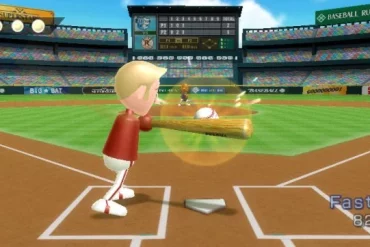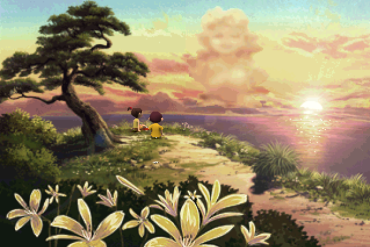May-June 2022
…love of diving into the ocean well-represented by moments in various N64 titles (Banjo-Kazooie, Banjo-Tooie, Ocarina of Time, Majora’s Mask) and the era’s tendency toward soundtracking waterscapes with particular synth textures. (Manual captions)
Adam Millard looks at how the ever-ripe temptation for game developers to lean into nostalgia can inhibit innovation. (Autocaptions) Chris Franklin discusses the effectiveness of the 1920’s German expressionist silent film aesthetic applied to Christoph Frey’s Letters to a Friend: Farewell. (Manual captions) …








